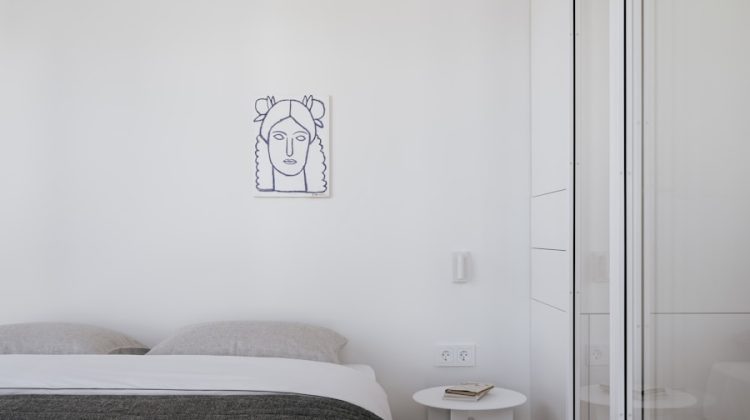
From Night Owl to Rested Soul: Sustainable Strategies for Better Sleep Hygiene
In a society that rewards hustle and glorifies late-night productivity, being a night owl often feels like a badge of honor. For many, staying up past midnight to finish projects, scroll endlessly on phones, or catch up on shows becomes an ingrained part of daily life. But the consequences sneak in slowly—daytime fatigue, lack of focus, irritability, weakened immunity, and an overall decline in mental clarity. If this sounds familiar, you’re not alone. The good news? It doesn’t have to be permanent.
Transforming from a chronic night owl into someone who gets consistent, quality rest is possible—without forcing yourself into an unnatural schedule or relying on drastic changes. The key lies in building sustainable habits around sleep hygiene—a collection of behaviors, routines, and environmental adjustments that promote healthy, restful sleep.
This essay explores the real-life barriers to good sleep, the science behind why sleep matters, and practical, achievable strategies that can help anyone—yes, even self-proclaimed night owls—transition into a healthier sleep rhythm.
Why Sleep Hygiene Matters More Than You Think
Sleep hygiene isn’t just about getting eight hours of rest; it’s about creating the conditions in which quality sleep can happen consistently. Think of it as a lifestyle architecture for your body’s natural rhythms. Just like you need to eat well for physical health or exercise for mental clarity, sleep requires intentional habits to function optimally.
Poor sleep hygiene isn’t always the result of insomnia or a medical issue. Often, it’s built through seemingly harmless behaviors: working on laptops in bed, falling asleep with the TV on, eating late-night snacks, or not having a consistent bedtime. Over time, these habits confuse the brain about when it’s supposed to be awake and when it should rest.
And sleep isn’t just about energy. It’s vital for memory consolidation, hormone regulation, mood stability, immune function, and even metabolism. Chronic poor sleep has been linked to higher risks of anxiety, depression, obesity, and cardiovascular disease.
The Night Owl Identity: Habit or Biology?
It’s true—some people are naturally predisposed to staying up late, a trait influenced by genetics and internal circadian rhythms. These “evening chronotypes” tend to feel more alert in the evening and struggle with early mornings. However, this natural tendency is often exaggerated by modern life: exposure to artificial light, irregular schedules, screen time, and social pressures.
While true night owls do exist, many people fall into this pattern through behavioral conditioning rather than biology. And even for those with a strong evening inclination, a few key changes can help realign your sleep schedule without resistance.
Practical Strategies to Improve Sleep Hygiene
You don’t need to overhaul your life overnight. In fact, sustainable sleep improvement comes from small, consistent changes. Below are core strategies rooted in science and practicality, designed to help you reset your relationship with rest.
- Establish a Consistent Sleep-Wake Schedule
Your brain craves rhythm. Going to bed and waking up at different times every day confuses your body clock and prevents deep rest. Start by picking a realistic wake-up time and sticking to it—even on weekends. Your bedtime will naturally begin to adjust once your mornings are consistent.
Pro tip: Use natural light to your advantage. Exposure to sunlight in the morning helps reset your circadian rhythm and tells your body, “It’s time to be awake.”
- Create a Digital Sunset
Screens emit blue light, which suppresses melatonin production—the hormone responsible for making you sleepy. To avoid disrupting your internal clock, begin a “digital sunset” one to two hours before bed. That means turning off your phone, laptop, TV, and even dimming overhead lights.
If full disconnection feels unrealistic at first, try wearing blue light blocking glasses or switching to apps and device settings that reduce blue light emissions.
Pro tip: Replace screen time with winding-down activities like reading, journaling, stretching, or listening to calming music.
- Make Your Bedroom a Sleep-Only Zone
Your bedroom should cue your brain to relax. If you work, eat, or doomscroll in bed, your body begins to associate the space with alertness, not rest.
Optimize your sleep environment by:
Keeping the room cool (around 60-67°F or 15-19°C)
Using blackout curtains to block external light
Minimizing noise with white noise machines or earplugs
Removing clutter and distractions
Investing in a comfortable mattress and breathable bedding
Pro tip: If you can’t fall asleep within 20–30 minutes, leave the bed and do a quiet activity in another room until you feel drowsy. Don’t force it.
- Watch Your Evening Intake
Caffeine, alcohol, and heavy meals can all sabotage sleep quality. Caffeine has a half-life of around 5–6 hours, meaning that afternoon coffee can still affect your sleep later in the evening. Alcohol might make you feel sleepy at first but disrupts REM sleep and causes nighttime awakenings.
Aim to:
Stop drinking caffeine after 2 p.m.
Avoid large meals within 2–3 hours of bedtime
Limit alcohol intake, especially close to bedtime
Pro tip: Herbal teas like chamomile, valerian root, or lemon balm can serve as soothing nighttime rituals.
- Move Your Body, But Not Right Before Bed
Exercise is one of the best natural ways to regulate sleep. Physical activity during the day helps reduce stress and promotes deeper rest at night. But timing matters. Intense exercise within an hour or two of bedtime can be too stimulating and delay sleep onset.
Instead:
Aim for 30 minutes of moderate movement daily (walking, yoga, swimming)
Schedule workouts earlier in the day or late afternoon
Pro tip: Evening stretches or restorative yoga can help signal to your body that it’s time to wind down.
- Mind Your Mind: Reduce Racing Thoughts
Mental clutter is one of the top reasons people can’t fall asleep. Whether it’s overthinking tomorrow’s to-do list or replaying conversations, an overstimulated brain struggles to shut down.
Introduce mindfulness rituals like:
Journaling to clear your head
Breathwork or meditation apps like Headspace or Calm
Progressive muscle relaxation to release tension
Gratitude practices to shift focus from worry to peace
Pro tip: Keep a notebook by your bed. If anxious thoughts strike, write them down and promise to revisit them in the morning.
- Be Patient and Track Your Progress
Changing sleep habits won’t yield immediate results, especially if you’ve been living as a night owl for years. The key is consistency, not perfection. Use a sleep journal or app to track your patterns and note what helps or hinders your rest.
Celebrate small wins, like going to bed 15 minutes earlier or reducing phone use before sleep. Progress builds gradually, and over time, those incremental changes can transform your energy, mood, and overall quality of life.
From Night Owl to Rested Soul: A Journey, Not a Destination
You don’t need to become a 5 a.m. riser to improve your sleep hygiene. What matters is alignment—choosing habits that respect your biology while still promoting restorative rest. For many night owls, the idea of turning in early feels unnatural, even impossible. But with patience and intention, it is possible to find a middle ground—a place where your evenings still feel sacred, but your mornings no longer feel punishing.
Sleep is one of the most generous gifts you can give yourself, and unlike productivity or status, it doesn’t require achievement—just presence. In a world that constantly demands more, better sleep is a quiet rebellion. It’s a return to balance, to health, and to the version of yourself that isn’t always tired.










